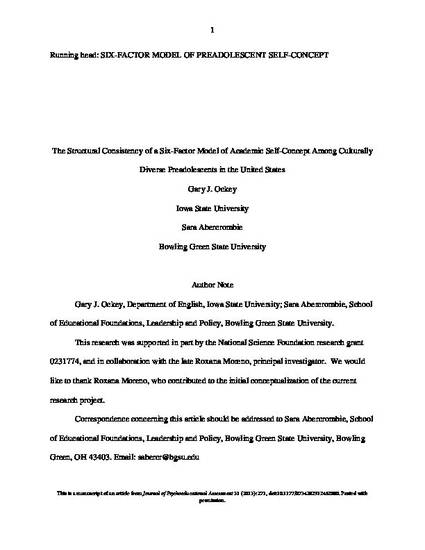
For decades, research has indicated that preadolescents’ self-concept is comprised of subject-specific academic factors, a general academic factor, and several nonacademic factors. More recently, there have been some indications that academic self-concept might further be differentiated into competence and affect factors, at least for some preadolescent ethnic groups. This study examines the extent to which a 6-factor model of academic self-concept, in which competence and affect are distinct, is tenable for White, Hispanic, and Native American preadolescents. A total of 313 White, 331 Hispanic, and 224 Native American preadolescents from the southwestern United States were administered a modified version of the SDQI. A confirmatory factor analysis (CFA) indicated that the 6-factor model of academic self-concept was tenable. A multiple-groups CFA suggested that the 6-factor model was largely group invariant between White and Hispanic and White and Native American preadolescents. However, important differences in the structures were identified.
Available at: http://works.bepress.com/gary-ockey/5/

This is a manuscript of an article from Journal of Psychoeducational Assessment 31 (2013): 271, doi:10.1177/0734282912462080. Posted with permission.